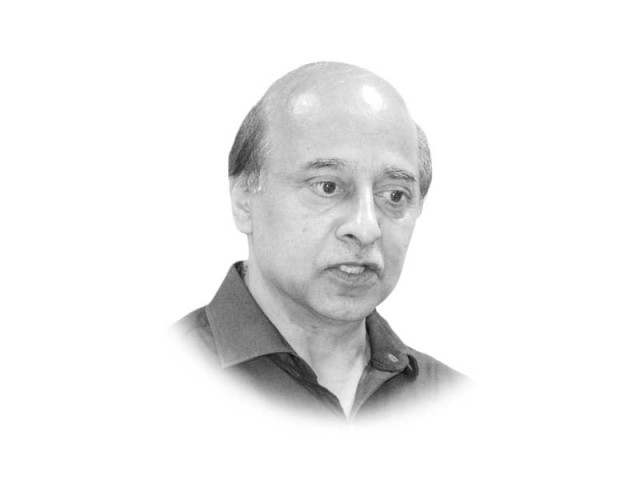Peace process: hostage to Haqqanis?
Should we wait for others to tell what is necessary to correct Pakistan’s image or repair relations with neighbours?

The writer heads the independent Centre for Research and Security Studies, Islamabad and is author of Pakistan: Pivot of Hizbut Tahrir’s Global Caliphate
A string of events and statements clearly underscore this development. A public announcement issued in the capital on May 10 stated: "Insurgents from theHaqqani and Taliban networks are known to be planning attacks on the Afghan people" in the northeast provinces of Parwan, Kabul, Logar , Khost, Paktia, Paktika (greater Paktia region).
“The Taliban are currently being commanded by [the] Haqqani [network]. We believe Haqqani and al Qaeda are two different names for the same terrorist organisation,” Afghan interior ministry spokesman Sediq Seddiqi told reporters in Kabul. He said Afghan security forces and military strategists are aware of the terrorist threat and are dealing with all of them as common enemies of Afghanistan.
Only a week ago, officials in Kabul had blamed the Haqqani network for plotting a Taliban bomb-and-gun attack on a facility linked to the Afghan intelligence agency NDS that killed nearly 70 people and wounded 347 more. They said the militant group is operating from Pakistan and has links to that country’s intelligence apparatus. Almost simultaneously, officials at Nato’s Resolute Support mission in Kabul, too, warned of the threats coming from the Haqqani network and dubbed it as “the most lethal” and “most competent" terrorist organisation in the area.
“Siraj Haqqani has been named the number two for the Taliban. And we think that he is increasing his day-to-day role in terms of conducting Taliban military operations,” US Army Brigadier General Charles Cleveland, deputy chief of staff for communications for Nato's Resolute Support mission said. “And we think that he is trying to exert more influence really, on the leadership withsome of these shadow governors in some of these other places [in Afghanistan].
But he also underscored concerns about the Haqqanis branching out from their traditional area and then focus on high-profile attacks like the one that killed nearly 70 people in Kabul last month. As of now, terrorist outfits in Afghanistan are the prime target of Nato’s Resolute Support Mission, while the Afghan National Security Forces are responsible for dealing with various brands of the Afghan Taliban, including the Haqqanis.
Where does this leave Pak-Afghan relations and does it really help the peace process? In fact, the Afghan-US convergence on the Haqqanis as the most lethaland the biggest threat jeopardises both. This convergence also feeds into India’s storyline on Pakistan. Haqqanis are now to Afghan-US officials what Lashkar-e-Taiba/Jamaatud Dawa is to India. This convergence also further limits Pakistan’s options and shrinks its leverage — whatever that means -- with the Afghan Taliban, although officials in Kabul consider it to be considerable.This synergy of thought may redraw the US into combat mode as an unavoidableconsequence of its mission i.e., counter-terrorism.
The Afghan Ambassador, a special envoy to Islamabad, Hazrat Omer Zakhilwal says the situation may still not be lost; we need an open discussion on our mutual grievances and need to look at potential benefits for both countries, rather than harping on the negatives. An end to the state of denial as well as to the mistreatment of Afghan visitors and refugees could be the first “baby-steps” toreduce acrimony and mitigate mistrust. Zakhilwal wants Pakistan to disentangle Afghanistan from its relations with India. According to him, Pakistan needs tolook at Afghanistan as a sovereign country not as an Indian proxy. He wouldn’t concede that geopolitics does muddy bilateral/multilateral relations, creating space for non-state actors. He insists that the India factor wouldn’t weigh heavy on a constructive Pak-Afghan dialogue.
The most crucial step, Zakhilwal says, would be to take demonstrably credible actions against the Haqqani Network, pretty much in line with the commitments Pakistan gave as part of the QCG. Making the Pakistani counter-terror narrative credible in Afghanistan would not be possible without hitting the Haqqanis’ social and business interests here, the ambassador says.
Should we wait for the Afghan or any other ambassador to tell us what isnecessary to correct Pakistan’s image abroad or repair relations with his country? Certainly not. It, however, takes two to tango; regardless of what Afghan leaders say the India-factor remains imposing in Kabul’s governance and security structures. It drives apprehensions — however misplaced — in Islamabad. Alleviating those apprehensions in a credible way would probably be the key to turn a leaf in bilateral relations.
Published in The Express Tribune, May 11th, 2016.
Like Opinion & Editorial on Facebook, follow @ETOpEd on Twitter to receive all updates on all our daily pieces.















COMMENTS
Comments are moderated and generally will be posted if they are on-topic and not abusive.
For more information, please see our Comments FAQ